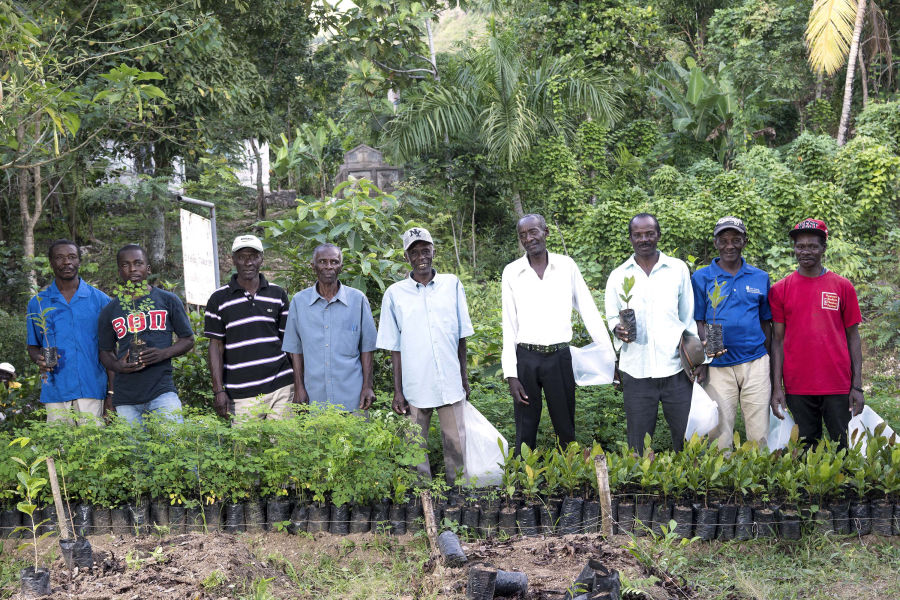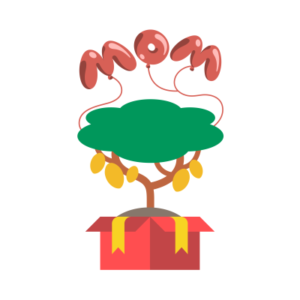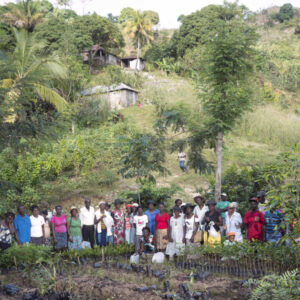LEGGI QUESTO ARTICOLO IN ITALIANO
I recently discovered Treedom, when my neighbors asked the City permission to cut down a wonderful Eucalyptus that was on public land near my house, because it was obstructing their Ocean view. In fact, the Los Angeles neighborhood where I live is characterized by tree-covered hills sloping down towards the Pacific. In this green and blue landscape, the green is thinning quickly to make room for new homes. When the Parklands Committee authorized this tree cut, I learned that the local regulations require applicants to pay the City a fee so that it can plant a new tree elsewhere. However, I found no specific information about where the new tree will be planted, what type of tree, when, etc. So, while seeking answers to these simple but important questions, I came across Treedom. This e-commerce platform based in Tuscany makes reforestation transparent, interactive and affordable.
The idea came from playing Farmville
Federico Garcea (CEO) and Tommaso Speroni (CTO) founded Treedom in 2010. I interviewed Federico, who explained how they came up with this idea: “Tommaso and I are political scientists and six years ago we were working in Cameroon on a project on sustainable biofuels for Africa”, he continues, “there we found farmers who survived by selling, actually selling off, whole forests, for about a thousand dollars per hectare. Saddened by this reality, we decided to find a way to help villagers profit more from planting trees than cutting them down.”

At that time, it was also very popular to play Farmville, a Facebook game where people compete with friends to create the most beautiful farm. Even Federico and Tommaso were playing this game, and they often were paying up to $5 for a “special edition” of a virtual tree to decorate their gardens. “So we thought,” says Federico, “if there are 30 million people playing Farmville daily, and many even pay for digital trees, why shouldn’t they be interested in paying to plant real trees? And that’s how the idea behind Treedom started.”
As many of us know, the situation of our forests is dramatic: according to a new study published in Nature, every year over 15 billion trees are cut down with huge damages to our ecosystems and air quality. Today, Treedom’s online platform, drawing on a combination of Farmville and the approach used to promote long distance children adoptions, contributes in fighting rampant deforestation through a videogame-like experience.
Depending on the needs and problems of each area, the startup helps local cooperatives to choose native species that can restore or preserve the ecosystem. In Senegal, for example, it works in an area near the sea where it supports growing mangroves to stop the desertification process.
Popular Italian singer Jovanotti was among the first ones to support Treedom buying 12,000 trees to offset its tour’s CO2. Among “corporate” sponsors there are H&M, GEOX, 3M, FIAT, ENEL (60,000 trees).
How can one adopt a tree on Treedom?
 “Users can choose the type of tree they want to buy, as well as its geographical location. Upon purchase, the relationship with the trees is kept alive via emails documenting the various stages of growth, from the nursery to the land where they will be planted, including photos of the farmer who will take care of them. Through an online page, the tree is geo-located and photographed; users can also measure its CO2 absorption in relation to their own emissions.”
“Users can choose the type of tree they want to buy, as well as its geographical location. Upon purchase, the relationship with the trees is kept alive via emails documenting the various stages of growth, from the nursery to the land where they will be planted, including photos of the farmer who will take care of them. Through an online page, the tree is geo-located and photographed; users can also measure its CO2 absorption in relation to their own emissions.”
How do you connect the online purchases with growing real trees?
“We create international NGO’s formed by groups of farmers who plant the trees and get paid for each tree. Many of them are fruit trees such as mangos, avocados, coffee, cocoa but also baobab…the main thing is that the farmers keep the fruit whether to eat it or as a source of additional income. We want the farmers to perceive the tree’s value over time. To ensure transparency, for every project we undertake, we go on a preliminary mission to meet the cooperatives in charge. We train them on monitoring the process using a tool that includes a GPS and our proprietary software. Annually, we go back to verify that everything is being done correctly and coordinate the planting of new trees for the upcoming year.”
How has been traction so far?

“Treedom has planted 250,000 trees through 10 projects mainly in Africa: Senegal, Malawi, Burkina Faso, Kenya, and Cameroon. But it is also working in Argentina and in Haiti where, after the earthquake, most trees have been cut down to rebuild houses. In Italy, we started a program with Libera, a cooperative which farms on land confiscated to the Mafia. In collaboration with Libera, we fund youth both in Campania and Sicily to plant orchards and olive groves. These projects generate both environmental and social benefits, which is our leitmotif.”
Give me some examples of your social impact in the communities you work with?
 “Our startup has been among the first 10 in Italy to obtain the B Corp certification given to for-profit companies certified by an international entity when they meet rigorous standards of social and environmental performance, accountability, and transparency. As part of this process, we did the analysis of our SROI (Social Return On Investment) and we found that, every dollar invested in a project to plant trees generates $29 within three years. Consider that a three-year-old avocado tree can already produce nearly 500 avocados a year, and farmers sell each avocado for about 7 cents, then a tree generates almost $35 a year. If a farmer plants 100 trees, by the third year he/she can already earn additional $3500/year. But each of our projects has its peculiarities and very different benefits. For example, we realized that a community in Kenya delivered the fruit of its trees (mangos and avocados) to the village school. After investigating a little, we found out that the farmers pay their kids’ school tuition with this fruit. Therefore, a tree can give environmental and economic benefits but, in this case, its return is also educational. Needless to say, we were very pleased to learn about this”.
“Our startup has been among the first 10 in Italy to obtain the B Corp certification given to for-profit companies certified by an international entity when they meet rigorous standards of social and environmental performance, accountability, and transparency. As part of this process, we did the analysis of our SROI (Social Return On Investment) and we found that, every dollar invested in a project to plant trees generates $29 within three years. Consider that a three-year-old avocado tree can already produce nearly 500 avocados a year, and farmers sell each avocado for about 7 cents, then a tree generates almost $35 a year. If a farmer plants 100 trees, by the third year he/she can already earn additional $3500/year. But each of our projects has its peculiarities and very different benefits. For example, we realized that a community in Kenya delivered the fruit of its trees (mangos and avocados) to the village school. After investigating a little, we found out that the farmers pay their kids’ school tuition with this fruit. Therefore, a tree can give environmental and economic benefits but, in this case, its return is also educational. Needless to say, we were very pleased to learn about this”.
What are your unique features?
“We put a lot of effort in being transparent through the traceability of each tree we fund. In addition, we pay a lot of attention to how our users connect to the trees trying to constantly improve their online experience. From an operational point of view, I believe that financing small projects in a widespread manner, using native species, as we do, can greatly benefit local populations. Conversely, when governments and corporations finance huge projects to plant millions of trees, they often choose monocultures. This means that if one tree gets sick within a year they all die. In addition, the trees need people to take care of them, so planting 1 million trees without providing any care, does not make real sense”.











